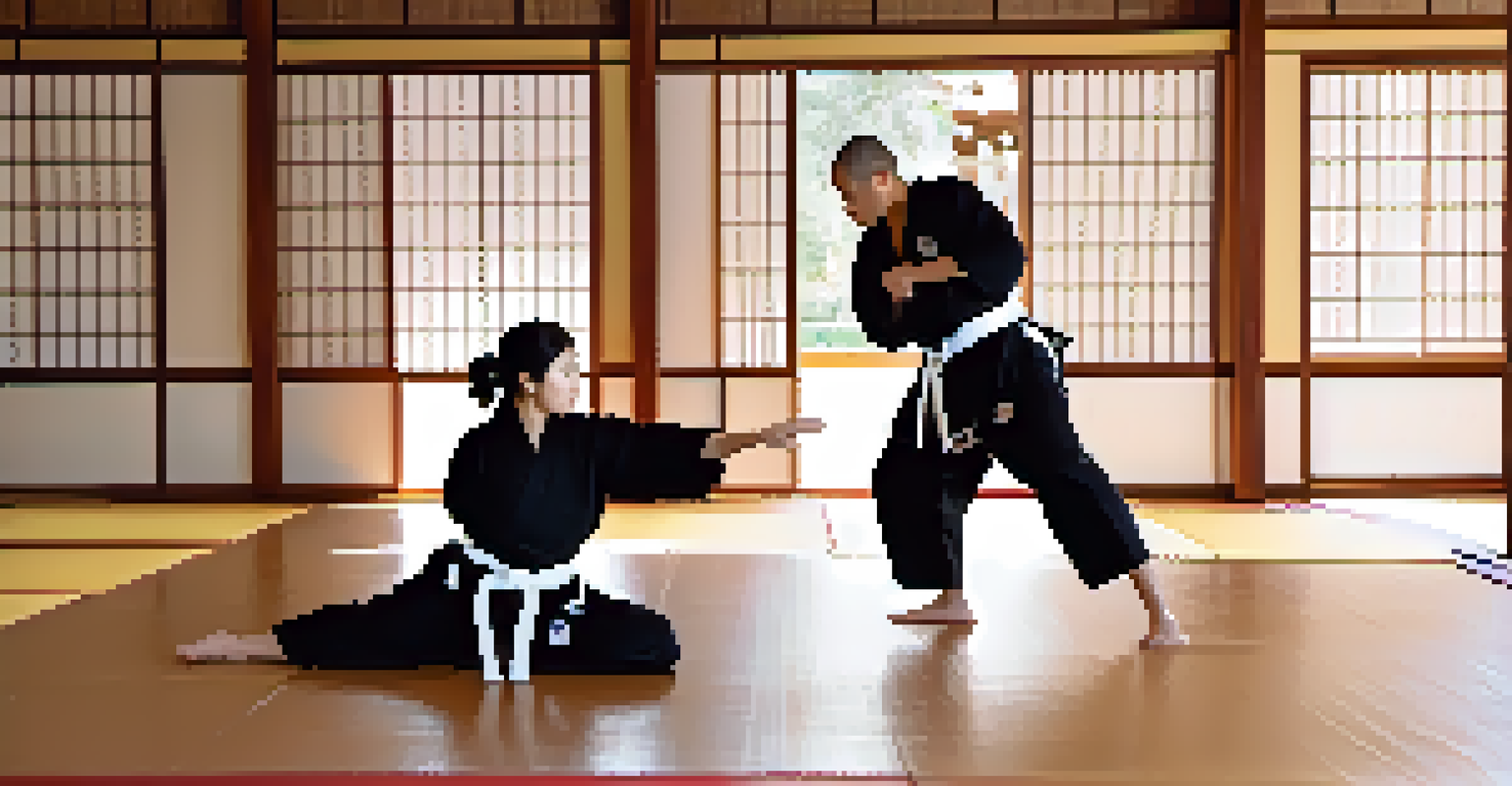Stress Responses: Their Impact on Self Defense Choices

What Are Stress Responses and Why Do They Matter?
Stress responses are the body's natural reactions to perceived threats. They can trigger physiological changes, preparing us to either fight or flee. Understanding these responses is crucial, especially when it comes to self-defense choices.
In the face of danger, the body’s stress responses can be the difference between life and death.
When faced with danger, our brains release hormones like adrenaline, heightening our senses and reaction times. This physiological response can mean the difference between effectively defending oneself or freezing in fear. Recognizing these stress responses can empower individuals to better prepare for real-life situations.
It’s important to remember that while stress responses can enhance performance, they can also cloud judgment. Those split-second decisions made in high-stress moments can greatly affect the outcome of a self-defense scenario.
The Fight or Flight Response Explained
The 'fight or flight' response is a well-known concept that describes how we react to danger. Essentially, our body prepares us to either confront the threat or escape from it. This instinctual reaction can be beneficial in self-defense situations, but it also comes with its own set of challenges.

During a fight or flight response, our heart rate increases, and our muscles tense up. While this can enhance physical performance, it may also lead to hasty decisions that aren't always the best. Understanding this response helps individuals recognize when they might overreact or underreact in a dangerous situation.
Stress Responses Shape Reactions
Understanding how stress responses work is crucial for making effective decisions in self-defense scenarios.
For example, someone might feel an overwhelming urge to flee when a confrontation arises, even if staying and defending themselves would be the better choice. Awareness of these tendencies can lead to more informed decisions in moments of crisis.
How Stress Influences Decision-Making
Stress can significantly alter how we make decisions, especially under pressure. High-stress situations can lead to narrowed thinking, where individuals focus solely on immediate threats. This shift can impact the range of options considered during self-defense scenarios.
The greatest weapon against stress is our ability to choose one thought over another.
For instance, a person under stress might overlook non-violent resolutions, such as de-escalation tactics, in favor of more aggressive actions. This impulsivity can lead to unintended consequences, which emphasizes the need for training in stress management.
By practicing self-defense techniques in controlled environments, individuals can learn to manage stress better. This preparation can help enhance decision-making skills, allowing for more calculated and effective responses in real-life situations.
Training to Manage Stress Responses
Training plays a pivotal role in how we handle stress responses during self-defense situations. Engaging in realistic simulations can help individuals get accustomed to the physiological reactions that occur under stress. By doing so, they can learn to manage their responses rather than be overwhelmed by them.
For example, martial arts training often incorporates scenarios that mimic real-life threats. This type of preparation can help individuals become familiar with their stress responses and develop coping strategies to remain calm and focused.
Training Enhances Stress Management
Engaging in realistic self-defense training helps individuals manage their stress responses and improve decision-making under pressure.
Ultimately, the goal of such training is to create muscle memory and a sense of control, which can significantly improve performance when faced with actual threats.
The Role of Experience in Stress Responses
Experience plays a crucial role in shaping how we respond to stress. Individuals who have encountered threatening situations may develop a more nuanced understanding of their stress responses. This accumulated knowledge can either bolster confidence or lead to anxiety, depending on the individual’s past.
For instance, someone who has successfully navigated a high-stress confrontation may feel empowered to respond effectively in future scenarios. Conversely, a person who has faced trauma might experience heightened anxiety, which could impair decision-making.
Recognizing the impact of experience on stress responses can help individuals prepare mentally for self-defense situations. Understanding one’s personal history can guide training and coping strategies.
The Importance of Emotional Regulation
Emotional regulation is critical in self-defense situations, as it allows individuals to maintain control during high-stress moments. Managing emotions effectively can lead to clearer thinking and better decision-making. By practicing emotional regulation techniques, people can improve their responses to stress.
For example, techniques such as deep breathing and mindfulness can help ground individuals when they feel overwhelmed. These strategies enable a person to step back and assess the situation rather than react impulsively, which is vital in self-defense.
Emotional Regulation Matters
Practicing emotional regulation techniques allows individuals to maintain control and think clearly during high-stress situations.
Incorporating emotional regulation into self-defense training provides individuals with tools to handle not just physical threats but also the emotional turmoil that often accompanies them.
Conclusion: Preparing for Stress in Self Defense
Understanding stress responses is essential for anyone interested in self-defense. By recognizing how stress can influence decision-making and reactions, individuals can better prepare themselves for potential threats. Knowledge, experience, and training play pivotal roles in shaping effective responses.
Additionally, focusing on emotional regulation and stress management techniques can empower individuals to stay calm and collected in challenging situations. This preparation allows for more thoughtful, rational choices in self-defense scenarios.

In summary, becoming aware of and training for stress responses can significantly enhance one’s ability to defend themselves effectively and safely.